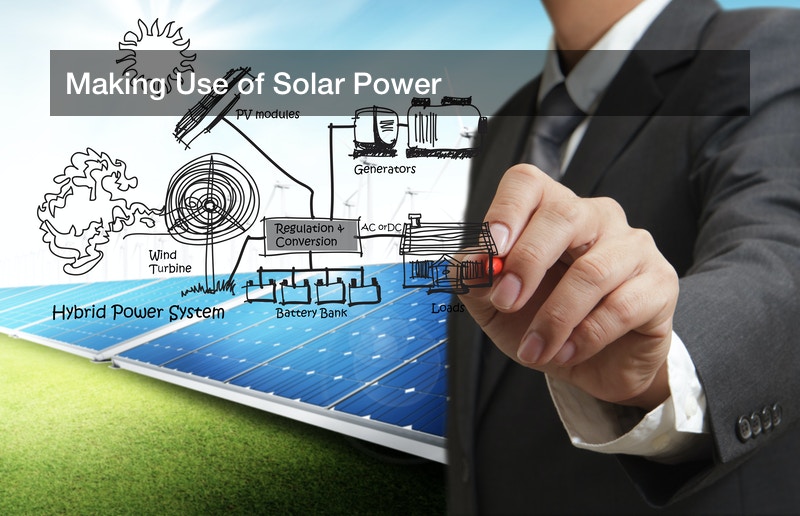
Humanity has always needed energy for work and production, and for much of history, this power came from animal labor or human labor such as blacksmiths or horse-drawn carriages. The Industrial Revolution changed all that, when steam power and machines in factories and trains and ships manufactured goods on a massive scale. In the late 1800s, electricity was harnessed, and this paved the way for many new inventions. In the 20th century, fossil fuel power plants were the norm, burning coal to drive turbines with steam that created electricity. This is still true today, but the fossil fuel industry has come under heavy criticism for its role in polluting the air, water, and natural environment. But modern civilization cannot simply shut off those power plants without a backup plan, since there is a massive need for electricity today. Fortunately, an alternative has appeared: solar power. Today’s solar panel companies are hard at work installing these power-generating panels across the world, and a solar panel company may work on a single house or build an entire array of panels out in the wilderness. This makes off grid energy storage a reality, and such off grid energy storage may be done for just one house, one company’s building, even a city’s worth. How can off grid energy storage be done?
On Solar Power
Solar energy, unlike fossil fuels, is effectively impossible to exhaust. A coal seam may get mined out and a natural gas pocket may be exhausted after drilling, but the sun produces power on a truly astronomical scale, and is expected to do this for another five billion years. Every day, more solar power flows across the Earth than is used in all of global civilization around the world. This power only needs to be harnessed, and solar panels will do just that. This bottomless energy source can be used when solar panels are set up in sunny areas, and the sunlight’s energy will excite electrons found in those panels, generating electricity. This power may then flow to a building, or it may be stored as off grid energy storage for future use. Either way, though, solar panels are known for never creating any byproducts of any kind, even after years of use. This is why they are a clean, sustainable, and effective means of gathering power. No solar panel will ever pollute the air.
Install Those Panels
Where should these panels be installed? They can be installed on a small or large scale, depending on the client. For example, a homeowner may decide to have solar panels put on their roof, and that homeowner will hire specialized contractors who set up the support brackets, install the panels, and connect all wires and circuits. Once inspections approve of the array, the home is disconnected from the local power grid and it will instead gather solar power. Some office buildings and other public buildings may do something similar for themselves, having their own private energy source that never pollutes.
That’s not all. Off grid energy storage can be done on a massive scale when industrial solar panel arrays are built. Hundreds or even thousands of these arrays may be built out in the wilderness where they won’t get in anyone’s way, and those arrays can collect vast amounts of power. Most often, these arrays are set up somewhere where sunlight is strong and plentiful and cloud cover is rare. The American southwest, such as southern California, Texas, and everywhere in between is a good example of this. Such areas have a lot of open, remote space with plentiful sunlight, and the solar arrays built there can provide enough power for entire city blocks or neighborhoods at a time.
Solar power is a relatively new technology and only recently has it become economically viable and efficient, but it’s proving quite popular. The global market for solar power grew 29.3% in 2017 alone, and many nations are building more than ever. These panels have recently become much more efficient with their work and price-efficient, making them economically viable to install nearly anywhere. In fact, many European nations, and some American states and cities, have pledged to build many more such panels (and wind farms) to phase out and shut down fossil fuel plants.
